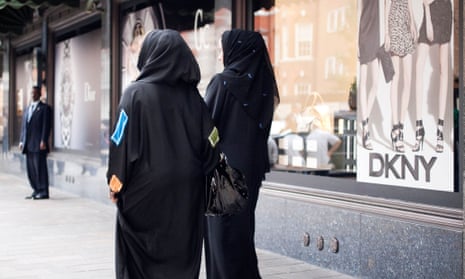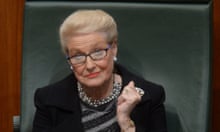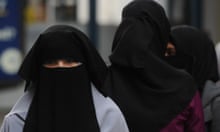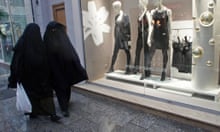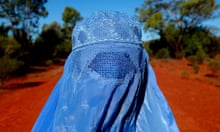There has been a recent hash out of an old debate about whether Australia should ban Muslim women from observing Islamic practices of face veiling. The burqa, a head-to-toe whole body covering, has elicited calls for an outright ban in public places.
In the aftermath of 9/11, the act of wearing the burqa was publicly declared as “un-Australian” by a number of politicians and public commentators such as Fred Nile, Michaelia Cash and Michael Smith. These politicians and public commentators sought to align face veiling with the oppression of women and national security, based on claims it could be used for hiding weapons and devices that posed a risk to public safety.
Following the counter-terrorism raids carried out last week, Liberal senator Cory Bernardi and Palmer United senator Jacqui Lambie made a correlation between the burqa and national security, after footage emerged of the presence of women wearing face veils in the houses that were raided last week.
In the Australian context, the veiling practices of Muslim women have often stood as signifiers to represent the perceived threat posed by Islam and Muslims to Australian cultural values. The veiled Muslim woman in the political arena is marked not only as a culturally incompatible “other”, as demonstrated by Bernardi’s comment that the burqa is not right in Australia, but the perceived oppression of Muslim women is also highlighted to demonstrate the country’s vulnerability to Islamic extremism.
This means that expressions of Islamic religious identity are readily suspected as a sign of fundamentalism and therefore a potential national security threat. Senator Lambie’s post on social media of an image of a burqa-clad woman handling a gun attached to prayer beads with a comment which reads the “burqa must be banned for security reasons” feeds into this idea. This is despite the fact the woman in the picture was a very powerful Afghan policewoman.
The veiling practices of Muslim women in Australia can be used in this way to create a dichotomy between Islamic and Australian values because the claims of Muslims as belonging to the nation are contested. Despite the fact that Muslim migration to Australia dates back to the middle of the nineteenth century or that the majority of Muslims are born in Australia, they are not recognised as part of the everyday identities and values that constitute the nation.
Empirical evidence suggests that exclusionary understandings of the nation, of Australia and Australian-ness as white and Christian allow for a narrow sense of belonging. In surveying racist attitudes in Australia, Kevin Dunn from the University of Western Sydney found this contributes to a strong antipathy towards Muslims. This finding was also echoed by the Australian Human Rights Commission in their Isma – Listen report that documented how women identified as Muslim by their dress were restricting their movements in public spaces and seeking safety in numbers due to experiences of cultural forms of racism in the mundane routines of going to work, school, university and shopping, as well as on the street and while using public transport.
In a research study I conducted exclusively into the everyday citizenship experiences of burqa-clad Muslim women, the results revealed a widespread sense of personal insecurity and societal disempowerment. Most of the women that participated in the project were born in Australia, they received a tertiary education and among them were nurses, teachers and scientists. All of the participants called Australia home, but many felt their place within the nation was precarious.
Most women revealed situations of being called a terrorist and having members of the public gesturing to them while making verbal references to Osama Bin Laden. Grown women relayed stories of being chased in public spaces by people threatening them with violence if they did not remove their face veils, while others revealed being run off the road while driving. Mothers were often shoved and sworn at in public in front of their children in spaces of leisure and consumption, or stared at nervously as if they were about to detonate a bomb.
Paradoxically, these experiences made burqa-clad Muslim women feel fearful for their own safety in public. In effect, these experiences reveal that membership into the mainstream Australian community for these women is limited in terms of what they can and cannot do, and where they can and cannot go. This informal socio-spatial legislation exists outside of formal instruments of law.
This projection of socio-cultural anxieties onto Muslim women is pertinent to consider in light of recent comments made by our politicians because it represents a struggle between giving women the autonomy to dress as they choose and their lack of ability to define the dominant narratives about their own identities. Denying the latter is as good as taking away the former because despite calls for legislative intervention against the burqa being unsuccessful in the Australian parliament, the social stigma around wearing the burqa means it is as good as banned. This is because the hegemonic narratives of identity prevalent in society about what it means to wear the burqa as existing within a nexus of patriarchy but more significantly security, has material effects.
